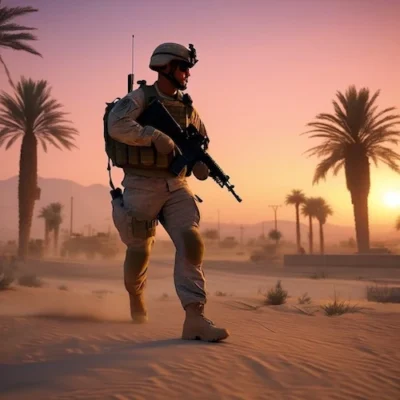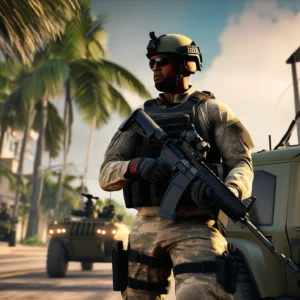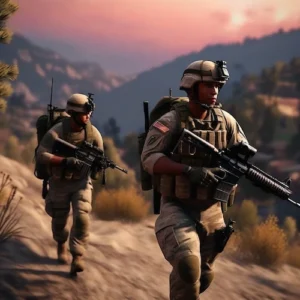Fort Bragg, North Carolina Military Defense Lawyers
Understanding the Legal Landscape at Fort Bragg
Located near Fayetteville, North Carolina, Fort Bragg is one of the largest and most mission‑intensive installations of the United States Army. With units such as the XVIII Airborne Corps, the 82nd Airborne Division and the U.S. Army Special Operations Command, the base is inherently high‑stakes for operations, discipline, and legal risk.
At our firm, Gonzalez & Waddington, Attorneys at Law, we have decades of experience defending service members from Fort Bragg and installations like it—handling everything from investigations to court‑martials to administrative boards. The Uniform Code of Military Justice (UCMJ), administrative separation processes, and Boards of Inquiry (BOI) all demand a defense team that knows the military mindset, the command structure, and how to challenge the government’s case.
Why Legal Issues at Fort Bragg Demand Immediate Attention
Because Fort Bragg hosts elite combat and special operations units, allegations of misconduct are often met with swift, aggressive action by the chain of command. From investigations by CID, NCIS or Army legal sections to referrals for courts‑martial or administrative boards, your rights, career and future may hang in the balance.
- Investigations often begin immediately after an allegation is made, leaving little time to prepare.
- The reputation of the unit and installation can drive the command‑response, increasing pressure on the accused.
- Administrative separation boards and BOIs may operate under a lower standard of proof yet still end your career.
- A court‑martial referral means you face not just military penalties but collateral civilian consequences—loss of security clearance, retirement, employment prospects, and more.
- Even non‑judicial punishment (NJP) or reprimands can appear in records and negatively impact promotions, assignments, and veteran benefits.
Key Facts, Offenses and Penalties Under the UCMJ at Fort Bragg
Understanding the legal framework that governs service members at Fort Bragg is essential. Below are the major points you must know when facing military justice or administrative action.
- Uniform Code of Military Justice (UCMJ): This federal statute empowers courts‑martial, non‑judicial punishment, and other disciplinary proceedings.
- Army Regulation 27‑10 (AR 27‑10): Governs the administration of military justice for the Army including at Fort Bragg—recently revised to clarify rights of counsel, trial procedures, and summary court‑martial requirements.
- Types of proceedings:
- Non‑judicial punishment (NJP / Article 15)
- Summary court‑martial (SCM)
- Special court‑martial (SPCM)
- General court‑martial (GCM) – highest level.
- Article 92 UCMJ – Failure to obey order/regulation
- Article 120 UCMJ – Sexual assault and rape
- Article 128b UCMJ – Domestic violence
- Article 134 UCMJ – General article (conduct prejudicial to good order & discipline)
- Administrative separation boards and BOIs for misconduct, poor performance or loss of trust. [oai_citation:8‡Military Advocate](https://militaryadvocate.com/fort-bragg-military-defense-lawyer/?utm_source=chatgpt.com)
- Reduction in grade, forfeiture of pay, extra duties or restriction
- Confinement from months to life, depending on forum and offense
- Bad‑conduct or dishonorable discharge
- Loss of retirement, VA benefits, security clearance
- Civilian collateral consequences such as sex‑offender registration, federal conviction record.

Possible Defenses and Strategic Legal Approach
At Gonzalez & Waddington we treat each case at Fort Bragg as high‑stakes, high‑visibility, and mission‑critical. Our defense strategy is layered, tailored, and aggressive:
- Early intervention: We engage immediately to preserve evidence, identify witnesses, protect rights under Article 31(b), UCMJ and AR 27‑10.
- Investigation of the investigation: Review chain of custody, metadata, forensic support, bias, improper command influence (UCI) and cultural issues.
- Expert use and forensic challenge: Digital forensics, toxicology, psychological experts and scenario testing to challenge government assumptions.
- Negotiation and alternative resolutions: When appropriate, we seek plea options, non‑judicial resolutions, or mitigation of administrative separations – always with career and future in mind.
- Trial readiness: For courts‑martial we prepare full strategy: cross‑examination, motions, forensic experts, jury/panel preparation, appeals and clemency readiness.
- Administrative board defense: We work to craft rebuttals, character statements, board preparation and discharge upgrade strategy.
The reality is: at Fort Bragg the command system is fast‑moving, the stakes are high, and the government’s resources are deep. You need a defense ally who understands the base, understands the mission, understands your rights — and fights like your career, freedom and future depend on it (because they do).
Why Hire Gonzalez & Waddington for Your Fort Bragg Case?
Choosing the right military defense lawyers at Fort Bragg can mean the difference between career destruction and redemption. Here’s why clients turn to our firm:
- Decades of combined experience in military justice—courts‑martial, administrative boards, BOIs and investigations.
- Former Army JAG and civilian trial attorneys who speak the language of the military, know the culture, and understand how to operate at Fort Bragg and major Army installations.
- Proven track record of acquittals, reduced sentences, favorable administrative outcomes and career saving solutions.
- We limit our caseload to ensure senior‑attorney involvement and bespoke strategy—not one‑size fits all.
- Global reach: we handle cases at Fort Bragg, overseas deployments, AR 15‑6 investigations, and coordinate civilian/host‑nation consequences when required.
- We protect not just your military standing, but your civilian future, your reputation, your retirement and your family.
Take Action Before It’s Too Late
If you are stationed at Fort Bragg and you are under investigation, facing non‑judicial punishment, anticipating an administrative separation board or looking down the barrel of a court‑martial, you cannot wait. Time, evidence, memory and command momentum all move fast. Contact Gonzalez & Waddington, Attorneys at Law for a confidential, immediate consultation.
➤ Schedule Your Confidential Case Review at ucmjmilitarylaw.com
Fort Bragg, North Carolina | Military Legal Guide – Frequently Asked Questions
What should I do if I am under investigation at Fort Bragg?
If you become aware of an investigation at Fort Bragg, you should immediately cease speaking to investigators and contact a qualified military defense lawyer. At Gonzalez & Waddington we advise early intervention to preserve evidence, assert your rights under Article 31(b) UCMJ and AR 27‑10, and begin building your defense strategy before the government’s case solidifies.
Can I hire a civilian military defense lawyer rather than rely solely on the JAG office?
Yes. You have a right to military (JAG) counsel, but you also have the right to hire civilian military defense attorneys at your own expense. Many service members at Fort Bragg choose Gonzalez & Waddington because of our intensive military justice experience, aggressive defense of UCMJ charges and administrative actions, and our track record in high‑stakes cases.
What types of cases do you handle at Fort Bragg?
We defend service members at Fort Bragg against a wide range of actions including: investigations under the UCMJ (Articles 92, 120, 128b, 134), courts‑martial (summary, special, general), non‑judicial punishments (NJP/Article 15), administrative separation boards, Boards of Inquiry and AR 15‑6/AR 27‑10 internal investigations. Our attorneys guide you through every stage of the process and protect your rights, your career and your future.
How are administrative separation boards different from courts‑martial at Fort Bragg?
Administrative separation boards at Fort Bragg are non‑criminal administrative proceedings. They do not require proof beyond a reasonable doubt and can end your military service, affect your discharge characterization and your veteran benefits—even without a criminal conviction. In contrast, courts‑martial are criminal trials under the UCMJ and may impose confinement, punitive discharge and other serious penalties.
What are the potential penalties for Article 120 UCMJ (sexual assault) at Fort Bragg?
If you are charged under Article 120 UCMJ at Fort Bragg, you face some of the most serious penalties in the military justice system: possible years of confinement, dishonorable discharge, loss of pay and allowances, mandatory offender registration, severe civilian collateral consequences and the end of your military career. Even the process itself—investigation, pre‑trial confinement, career harm—can be devastating. You need a seasoned defense team like Gonzalez & Waddington to fight these charges.
How do I schedule a consultation with Gonzalez & Waddington for my Fort Bragg case?
To schedule a confidential consultation for your Fort Bragg case, visit ucmjmilitarylaw.com/contact and complete the secure intake form. A senior military defense attorney from Gonzalez & Waddington will promptly review your situation and outline how we can protect you, your rights and your future.
Fort Bragg, North Carolina | Military Legal Guide
Overview of Fort Bragg, North Carolina and Surrounding Area
Fort Bragg is one of the largest military installations in the world, serving as a major hub for U.S. Army air assault operations. It is home to key military units including the XVIII Airborne Corps and the Special Forces. Situated near Fayetteville, North Carolina, the surrounding area has a diverse legal culture supporting military personnel and their families.
Brief History of Fort Bragg, North Carolina
Established in 1918, Fort Bragg was initially created to serve as an artillery training ground. During World War II, it evolved into a significant airborne and special operations hub. Post-9/11, Fort Bragg has played a pivotal role in ongoing military operations across Iraq and Afghanistan, cementing its status as a critical component of U.S. national defense strategy.
Military Law & Legal Issues at Fort Bragg, North Carolina
Court-Martial Under the UCMJ
- Common charges: Article 120 (sexual assault), 128b (domestic violence), 133/134 (misconduct)
- Process overview: Understand the stages of a court-martial from investigation to verdict.
- Right to civilian counsel: Ensure your representation is robust and independent.
Article 15 / NJP
- Accept or refuse: Weigh the consequences carefully before deciding.
- Long-term career impact: Consider how NJP can affect your military trajectory.
GOMORs & Letters of Reprimand
- Local vs. permanent filing: Understanding immediate and lasting implications.
- Rebuttal strategies: Effective ways to contest and mitigate reprimands.
Administrative Separation (Chapters)
- Process for enlisted and officers: Navigate separations processes like Board of Inquiry, separation boards.
- How to preserve an Honorable discharge: Important steps to protect your service record.
Command-Directed Investigations (CDIs) & IG Complaints
- Common misuse: Identifying and defending against improper investigations.
- Risks of waiving rights or giving statements: Safeguard your rights during inquiries.
Legal Services Available at Fort Bragg, North Carolina
Base Legal (JAG)
- What they provide: Legal assistance in drafting powers of attorney, wills, etc.
- What they do not provide: JAG cannot help with criminal defense or representation in major boards.
Civilian Military Defense Lawyers
Why civilian lawyers matter: They bring independence, extensive trial experience, and confidentiality to your defense strategy. Opting for a civilian attorney can be crucial in complex legal situations.
Some Well-Known Civilian Military Defense Lawyers that Serve this Area
There’s no single “best” military defense lawyer. When choosing representation, consider these key qualities:
- Proven track record in UCMJ, trial, Article 15, and court-martial defense
- Experience with administrative separation boards and GOMOR rebuttals
- Familiarity with military law protocols and base-specific culture
- Clear communication and timely responsiveness
- Willingness to provide personalized support and strategic advice
Fort Bragg, North Carolina – UCMJ & Court-Martial Defense Pages
- Best UCMJ Defense Lawyers in Fort Bragg North Carolina
- Best Court Martial Lawyers in Fort Bragg North Carolina
- Best Military Defense Lawyers in Fort Bragg North Carolina
- Best Court Martial Defense Attorneys in Fort Bragg North Carolina
- Best UCMJ Defense Attorneys in Fort Bragg North Carolina
- Best Military Defense Attorneys in Fort Bragg North Carolina
- Best Administrative Separation Board Defense Lawyers in Fort Bragg North Carolina
- Best Article 120 UCMJ Defense Lawyers in Fort Bragg North Carolina
- Best Board of Inquiry (BOI) Defense Lawyers in Fort Bragg North Carolina
- Best Article 120b UCMJ Defense Lawyers in Fort Bragg North Carolina
- Best Article 120c UCMJ Defense Lawyers in Fort Bragg North Carolina
- Best Article 128b UCMJ Domestic Violence Defense Lawyers in Fort Bragg North Carolina
- Best Article 134 UCMJ Military Defense Lawyers in Fort Bragg North Carolina
- Best Command Investigations and AR 15-6 Rebuttal Lawyers in Fort Bragg North Carolina
- Best Reprimand Rebuttals (GOMOR and LOR) Military Lawyers in Fort Bragg North Carolina
- Best CID NCIS OSI and CGIS Investigation Defense Lawyers in Fort Bragg North Carolina
- Best Nonjudicial Punishment Article 15 Captains Mast Defense Lawyers in Fort Bragg North Carolina
- Best Sexual Harassment Defense Lawyers in Fort Bragg North Carolina
- Best Homicide and Violent Crime Defense Lawyers in Fort Bragg North Carolina
- Best Fraternization and Adultery Defense Lawyers in Fort Bragg North Carolina
- Best Computer Crime and Online Enticement Defense Lawyers in Fort Bragg North Carolina
- Best Child Pornography and CSAM Child Sexual Abuse Material Defense Lawyers in Fort Bragg North Carolina
- Best War Crimes and Law of Armed Conflict Defense Lawyers in Fort Bragg North Carolina
1. Gonzalez & Waddington, LLC
Website: ucmjdefense.com
Based in: Florida / Worldwide
Specialties: Article 120 UCMJ defense, military sex crimes, war crimes, administrative separations, high-profile court-martials
Why they’re on the list:
Military defense lawyers Michael Waddington and Alexandra Gonzalez-Waddington are widely considered among the best sex crime and war crime defense attorneys in the military justice system. With hundreds of high-profile military trials under their belts—including cases involving SEAL Team 6, Green Berets, and fighter pilots—they are known for unmatched trial strategy, elite cross-examination skills, and a record of full acquittals. Michael is also a bestselling author of Kick-Ass Closings and Kick-Ass Impeachment.
2. Tim Bilecki – The Bilecki Law Group

Website: bileckilawgroup.com
Based in: Florida / Global
Specialties: Military sexual assault, fraud, international courts-martial
Why he’s on the list:
Tim Bilecki is a former Army JAG with a global reputation for defending complex military cases, often involving combat zones or classified operations. With a commanding presence in the courtroom and a reputation for strategic pretrial dismantling of government cases, Bilecki has become a go-to lawyer for officers and senior enlisted members facing high-level prosecution. His firm focuses on international clients and military members in the Pacific and Asia regions.
3. Artie Vaughn

Website: vaughndefense.com
Based in: Alabama, but defends cases worldwide
Specialties: Article 120 UCMJ, toxic command climates, stacked allegations
Why he’s on the list:
He built his rep the old-school way—by walking into hostile courtrooms and winning cases nobody else would touch. Vaughn’s specialty is turning around cases that look unwinnable on paper: Article 120 allegations where the accused is being railroaded by command, stacked charges driven by command influence, and cases involving combat stress, PTSD, and behavioral health complexities that most lawyers don’t know how to argue.
4. Terri R. Zimmermanna
Website: www.texasdefenselawyers.com/terri-zimmermann/
Based in: Conroe, TX
Specialties:Appellate litigation, military crimes, UCMJ defense
Why he’s on the list:
Terri R. Zimmermann is a nationally-recognized expert criminal litigator with over 30 years of experience representing citizens accused of violating the law or convicted of crimes in civilian and military courts. Her unwavering passion is to secure the best possible outcome for each client, whether through challenging the prosecution at trial or presenting compelling appeals to overturn convictions. Ms. Zimmermann is on a mission to ensure that government entities, be it state, federal, or military, adhere to the rules, treating her clients fairly and with dignity.
5. Bill Cassara
Website: court-martial.com
Based in: Augusta, GA
Specialties: Appellate litigation, military sex crimes, UCMJ defense
Why he’s on the list:
With decades of experience and deep knowledge of military case law, Philip Cave is a sought-after expert for appeals and complex legal motions. His firm often collaborates with other attorneys to handle high-level constitutional or evidentiary challenges.
Why These Lawyers Made the List
This list is based on actual courtroom experience, published verdicts, legal credentials, peer recognition, and results—not on paid placements or advertising. Many so-called “military lawyers” have never defended a court-martial trial. These attorneys do it regularly and at the highest levels.
Local Military/Government Legal Resources
FAQs
- Does the UCMJ apply off base at Fort Bragg?
Yes, the UCMJ applies to service members off base, covering conduct both on and off duty. - Can I request a civilian lawyer while stationed at Fort Bragg?
Service members have the right to choose a civilian lawyer to represent them in military legal matters, apart from the JAG-appointed attorney. - What happens if I refuse an Article 15?
Refusing an Article 15 could lead to a court-martial, where the charges and potential consequences could increase. It’s a decision best made with legal counsel.
